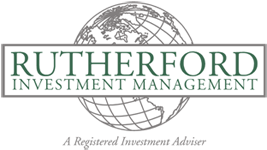Published April 8, 2022

On the one hand, there is a war in Europe that is roiling stock markets everywhere.
On the other, we have inflation leading the Federal Reserve to raise interest rates.
The war
Vladimir Putin’s declaration of war on Ukraine not only caused specific damage but also upset markets across the globe. In creating chaos in financial markets and on the ground, the war is threatening to undo the global connections created since World War II. Mutual defense pacts and commercial agreements have been tested.
As of this writing, it is not clear if the war will become a global conflict. Spread could happen if the U.S. or other NATO members and Russia come into direct conflict.
Ukraine would like the U.S. to take a more active role in the conflict, but the U.S. has so far been reluctant to escalate the situation. China remains a wild card.
At this moment, China and Russia appear to be friends. That could change. They have had border conflicts in the past. Furthermore, the price of friendship with Putin’s pariah state could be higher than the Chinese want to pay. However, China aspires to be the global leader, upending the role the U.S. has enjoyed since World War II. So, if the Chinese see an opening to further their ambition, they might take it. The U.S has made it clear that it wants China to stay out of the fray. The U.S. is not as persuasive as it once was.
If the war does spread, we can expect it to become a long and protracted struggle. Can Ukraine survive in such a struggle? The U.S. does not want to see the Russian sphere of influence spread, but it’s reluctant to confront Russia directly; thus we could be left to fight a proxy war, if Ukraine can last. A proxy war would be a reversion to the Cold War, which is a possible outcome. If so, that will be a protracted struggle too, just as the Cold War was. The U.S should be able to win such a war, if we play our cards right and if we can avoid a hot war.
Inflation
The Putin war also is having an adverse effect on inflation, pouring oil on already troubled waters. Food and other commodities have become in short supply, ramping up prices. We are already seeing the effect of war at the gas pump, but it is affecting other commodities in addition to food.
Increasing costs for essential items can increase unrest among the electorate and affect national elections. Revolutions have been fought over the price of bread. The result may be bad for Republicans and good for Democrats, but whichever party wins will need a plan for dealing with these twin problems. Neither seems to have a plan right now.
The Federal Reserve has a plan for dealing with inflation: raise interest rates and shrink the money supply. The “Build Back Better” plan put a lot of money into the system; it is still having an inflationary effect. The Fed wants to slow things by tapping the brakes hard but not creating a recession. The goal is to engineer a soft landing, but that is difficult and seldom successful.
The Fed has already announced an aggressive plan to raise interest rates. Will it overshoot? It has scaled back its bond-buying program to reduce liquidity. If the Fed is successful in those twin efforts, we may see a hard landing.
For sure, if the economy enters a recession, the Fed doesn’t have much dry powder to stimulate the economy; that has mostly been used. The Fed knows this and is treading softly.
With all these problems and alternatives, what is an investor to do? War and the advent of inflation warrant review of the options available to individuals investing for retirement.
Cash and bonds offer some security and respite from volatility, but in an inflationary, rising-interest-rate environment, they don’t offer much reward. In fact, inflation is the enemy of savers, resulting in declining purchasing power. Real estate offers an inflation hedge, but requires active management and not much liquidity, especially as financing rates move higher. Commodities can be an inflation hedge but can be very volatile and require specialized knowledge. Gold offers safety, but not much return and can have carrying costs.
In this environment, by a process of elimination, equities seem to remain the best option – but they do come with risk and volatility. Each investor must evaluate their own risk tolerance and specific time horizon. Consult with a financial advisor before making any decisions. Historically, over the long term, equity markets have moved upward, despite significant periods of severe fluctuation and decline.
William Rutherford is the founder and portfolio manager of Portland-based Rutherford Investment Management. Contact him at 888-755-6546 or wrutherford@rutherfordinvestment.com. Information herein is from sources believed to be reliable, but accuracy and completeness cannot be guaranteed. Investment involves risk and may result in losses.
The opinions, beliefs and viewpoints expressed in the preceding commentary are those of the author and do not necessarily reflect the opinions, beliefs and viewpoints of the Daily Journal of Commerce or its editors. Neither the author nor the DJC guarantees the accuracy or completeness of any information published herein.
